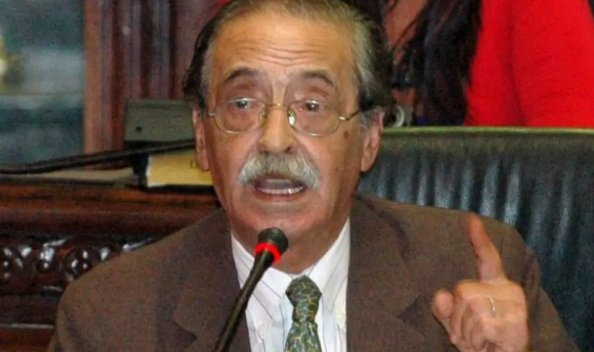Francesco Saverio Borrelli, born on April 12, 1930 in Naples, Italy, and deceased on July 20, 2019 at the age of 89, was a lawyer, politician, and magistrate who led the “Mani Pulite” operation, an Italian term meaning “Clean Hands,” a legal case that brought down hundreds of politicians and businessmen involved in bribery and money laundering.
Why was Saverio Borrelli so important during the judicial process?
The magistrate was, along with two other individuals, one of the main figures who directed the entire operation to expose the corrupt political practices carried out by over 3,000 politicians, including businessmen, deputies, senators, and others.
Francesco opened a new era in Italian politics. The Italian Socialist Party, the Italian Democratic Party, the Italian Liberal Party, and Christian Democracy were four parties involved in the case and eventually disappeared following the movement led by Saverio Borrelli. The PSI (Italian Socialist Party) played a central role in the events, with Bettino Craxi at the head, who had served as Prime Minister during three Italian governments.
The operation led by Saverio Borrelli caused the dissolution of the PSI, which in 1993 received only 3% of the general election vote. The case was triggered by the arrest of Mario Chiesa, a member of the PSI who was caught accepting several million lire in bribes. In Italy, the concept of bribery is known as “Tangentopoli,” closely associated with the case led by the lawyer and magistrate.
How did Saverio Borrelli come to the “Mani Pulite” case?
“Capo,” “leader,” were some of the terms used by several people to describe Saverio Borrelli at the time of his death. Various media outlets headlined the news with significant praise for him, reflecting the importance of the Clean Hands operation in recent Italian history.
In the 1950s, Borrelli graduated from law school. After completing his academic training, he entered the Magistrature, the institution composed of judges and magistrates, with magistrates holding higher status. Borrelli stood out as a prosecutor at the Milan Court until 1988, several years before the judicial process that uncovered political corruption in Italy.
A group of magistrates led by Borrelli carried out the Clean Hands operation, also known as “Tangentopoli.” This case is historic in Italy, as it helped remove hundreds of politicians, businessmen, senators, and deputies linked to the Italian Socialist Party who relied on bribes for personal gain. The case revealed illegal funding among political parties.
Amidst this, Bettino Craxi resigned from his position and later sought refuge in Tunisia, where he was declared a fugitive. The first to fall was Chiesa, who during his testimony revealed an “extensive network” that put all involved parties in a difficult position. Meanwhile, Italian society actively participated in protests and demonstrations in response to the corruption case that paralyzed the country.
The rise of Forza Italia and Berlusconi
The dissolution of the parties implicated in the bribery case paved the way for the rise of a new party called “Forza Italia,” with Silvio Berlusconi emerging as a leading figure. In 1993, the party was formed by several former socialists and liberals who had broken away from their original groups. To understand the magnitude of the case, the four or five implicated parties had governed the country since the 1940s. In 1994, Berlusconi took the lead.
Saverio Borrelli also lived through an era later labeled as “bribe city.” The thousands of dollars found in Mario Chiesa’s office triggered a chain of illegal financing cases. Ironically, Chiesa ended up as the “villain” of the story after disclosing the number of people and parties involved.
One gesture recognized Saverio Borrelli’s role in the case. He was named “Knight Grand Cross of the Order of Merit of the Italian Republic,” an Italian institution that honors public figures. “1992” is an Italian series that addresses the events of those years and was released on Sky Italia.
Cultural impact
The event opened a sensitive chapter in Italy, which remains entangled in corruption cases and where society continues to be affected by the actions carried out by organizations or criminal networks. The case became so significant that it earned a specific name, and when “Tangentopoli” is mentioned, Italians immediately know what it refers to.







